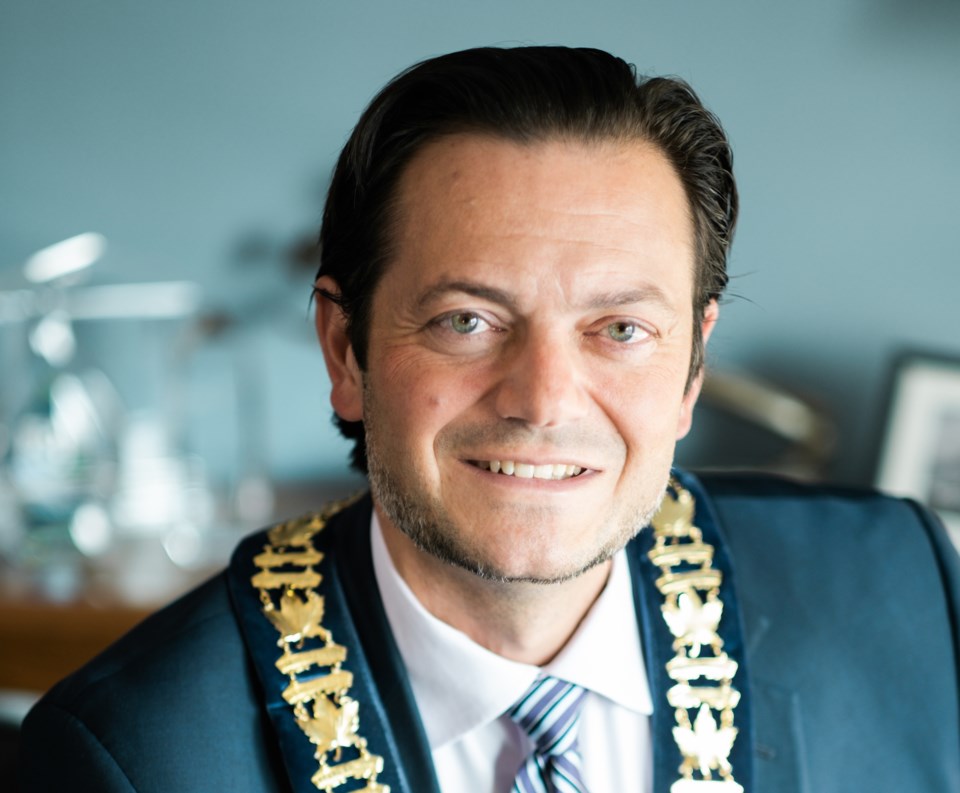Another piece to Barrie’s affordable housing puzzle is in place.
Council approved a motion Monday to inform all owners of institutionally designated properties in Barrie of its intention to allow housing as-of-right on this land, and inviting them to contact the city to discuss the potential for the construction of affordable housing on their properties.
Once projects are determined, city staff will seek proposals from consultants in accordance with Barrie’s procurement bylaw to conduct feasibility studies for affordable housing projects on institutionally designated properties, owned by non-profit or charitable organizations, to be funded by the city’s community benefit reserve for a total of as many as 10 studies at a maximum cost of $20,000 each.
“I think many of these organizations - whether service clubs or places of worship - they want to step up and help the community,” said Mayor Jeff Lehman, “and this is a way to give them a little bit of help to be able to partner with and bring the community together by building more affordable housing.”
This could begin in the fall with proposed changes to the city’s Official Plan (OP) and Zoning Bylaw to allow residential uses on institutional land, which is currently not permitted.
“This is quite possibly the most significant thing we have done in probably a year and a half to increase affordability in Barrie,” said Coun. Sergio Morales. “People who want to live in Barrie are getting to the point where they can no longer afford to live and they’re leaving, not because they want to, but because they have no other option.”
Coun. Clare Riepma supports the motion, but said there are three caveats to the plan working.
First is making the OP and rezoning changes, second is making sure what’s built really is affordable housing and that it stays as such, and third is how these projects are financed after the feasibility studies are done.
“This will help them to do their initial feasibility work, but there’s a lot more money required to move the project beyond that, to get a building built,” Riepma said. “So we need to be prepared that these non-profits, if they intend to go ahead, will need a financing partner, a developer or bank.”
A public meeting was held in June for a number of OP, city initiated rezoning plans to deal with affordable housing, and allowing residential use on institutional land was included. This motion goes further than zoning, paying for studies to get affordable housing projects going.
Paying for feasibility studies for some organizations which own institutional properties, churches and places of worship, is necessary because they aren’t developers. They need advice from planners, architects, etc.
The motion comes from the affordable housing task force, which is chaired by Lehman.
Institutional zoning was changed some time ago to no longer allow residential uses, so a rezoning was needed to do that. Which means a rezoning application, a public meeting and a decision by city council - which can be a slow, expensive process.
The affordable housing task force’s mandate is to co-ordinate Simcoe County, Barrie and charitable/not-for-profit housing projects and policies, to aggressively expand the supply of affordable housing, with particular emphasis on addressing the hardest to house.
Created last March - along with a performing arts centre and downtown market precinct task forces - each is to report by year’s end with specific plans.
The city defines affordable rental housing as a unit for which the rent doesn’t exceed 30 per cent of the gross annual household income for low-to moderate-income households. That income is based upon the most recent Canada Census statistics for Barrie, which is updated every five years.
Affordable housing is a range of housing types allowing families and individuals, of all income levels, to find suitable places to live without spending a disproportionate percentage of their income on housing. Affordable housing can include ownership, rental or subsidized housing. Barrie’s affordable housing strategy is designed to encourage, stimulate and increase the supply and range of affordable housing options to meet the needs of residents of all income levels, at all stages of life.
Monday’s motion also instructs the affordable housing task force to report back to council on the success of the program in encouraging applications from interested property owners, by December, 2021, and further contact places of worship designated residential with the potential developable lands for the same purpose.
“The only organizations that could take advantage of this are non-profit or charities,” Lehman said, “as I’m not interested in funding private developers’ feasibility studies. I think that’s something private developers can do.”
City staff will also report back to council about other ways to potentially provide financial incentives to institutions building affordable housing, including the discounting of development charges partial or complete, and other ways of reducing application fees and soft costs.



